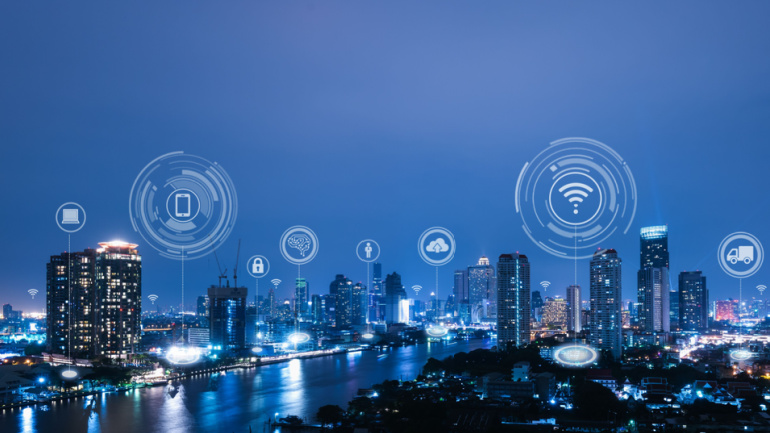G REIGNS, HTC Group’s subsidiary, collaborates with Nissan to deploy a private 5G network, boosting augmented reality VR capabilities in manufacturing. This bespoke setup leverages HTC’s VIVE VR tech, revolutionizing design and production.
Germany is investing €5 billion in a new semiconductor manufacturing facility in Dresden through the European Semiconductor Manufacturing Company (ESMC) initiative. The facility will leverage advanced technologies like FinFET and aims to reduce Europe’s dependence on U.S. and Chinese semiconductor imports. This strategic move promises to enhance Germany’s role in the global semiconductor industry.
UScellular has teamed up with MxD to enhance private network technology in U.S. manufacturing. Utilizing advanced equipment at MxD’s Chicago facility, UScellular’s 5G network solutions aim to elevate digital manufacturing. This partnership highlights the fusion of private cellular tech with existing Wi-Fi systems, marking a significant advancement in Industry 4.0 communication.
In an innovative move, Ericsson and AWS have joined forces to implement a groundbreaking 5G power machine vision system in Hitachi’s manufacturing plant. This system aims to leverage real-time digital visuals, AI, and edge-to-cloud technologies for superior automated error detection. Beyond the norm, it can inspect 24 assembly components simultaneously with high-resolution cameras pinpointing defects at the sub-millimeter range. Such a venture showcases the potential of combining private 5G, cloud, and AI technologies in revolutionizing product manufacturing, even amidst the current market uncertainties.
Deutsche Telekom and Google venture into tablet manufacturing, pinning their hopes on the affordable “T Tablet”. Designed for digital learning, this device blends advanced hardware, potent software, and network capabilities. Aiming at a wider 5G access, it also targets narrowing the digital divide. The tablet’s debut could spark new conversations about digitization in the education sector and beyond.
Ningbo, a vibrant economic hub in China, is transforming into a smart manufacturing center, committing itself to superior digital infrastructure. The heart of this strategy encompasses a six-layered approach focused on efficient information transmission that fosters industry digitization. With established leadership in 5G industrial internet, and over 600 private networks already deployed, the city provides a gateway to the digital future. Innovation extends beyond large corporations, with solutions ranging from on-premise to lightweight 5G private networks, thus catering to businesses of all sizes. The impact is far-reaching and the future, promising, as China Mobile Ningbo aims to address industry-specific challenges with targeted 5G solutions.
The Finnish telecom equipment manufacturer Nokia has officially announced that its plant in Chennai, Southern India, has started manufacturing their 5G New Radio (NR) based on the 3GPP 5G New Radio Release 15 standard. “This is another big leap towards the ‘Make in India’ vision as our factory continues to contribute to the Indian economy and the country’s growing profile as a manufacturing and engineering hub. Nokia was the first to leverage the skills and capabilities in India and start manufacturing telecom networks equipment in the country in 2008, and develop the local supply chain for various components. We are now pioneering 5G manufacturing in the country, making India and the world ready for 5G,” commented the senior vice president and head of the India Market at Nokia, Sanjay Malik. Nokia’s factory in Chennai has maintained its position as one of largest and leading plants in the country by…
Deutsche Telekom has launched T Cloud, a unified platform delivering customizable cloud solutions tailored to European enterprises. Alongside a partnership with Nvidia to build Europe’s first industrial AI cloud, the company aims to provide secure, sovereign digital infrastructure supporting regulatory compliance, industrial innovation, and technological leadership.
Alibaba Cloud is accelerating its global expansion with new data centers in Malaysia and the Philippines and a $52.7 billion investment in infrastructure. The launch of its AI Global Competency Center in Singapore highlights its push to train talent and deploy AI across industries.
Solis has partnered with DIDWW to enhance its global communication capabilities through advanced VoIP solutions. This collaboration supports Solis’ European expansion and reinforces its commitment to innovation and customer-centric service, while advancing its mission to deliver smart, sustainable energy solutions worldwide.












